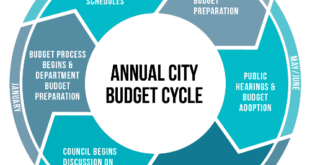By Peter W. Wagner
There’s a small women’s clothing boutique in our town whose owner claims to have 2,400 Facebook followers. It’s a claim that begs the question, how does a small-town boutique attract almost 25 hundred followers?
In larger markets most of the specialty stores have professional agencies regularly updating the information on their site. Those web advertising professionals attract followers by offering “dollar off” coupons, special drawings and creative contests to those who becomes a “friend.”
 But the owner of a one-person shop, already overloaded with buying and checking in merchandise, arranging in-store displays and waiting on customers, has little time to refresh or promote just one site, let alone all the emerging digital offerings. So, were the names purchased from some listing service, provided by one or more suppliers, swapped around in some buyer’s group or are they really potential customers?
But the owner of a one-person shop, already overloaded with buying and checking in merchandise, arranging in-store displays and waiting on customers, has little time to refresh or promote just one site, let alone all the emerging digital offerings. So, were the names purchased from some listing service, provided by one or more suppliers, swapped around in some buyer’s group or are they really potential customers?
Selling and buying online has truly become a permanent part of our culture. But what will that trend mean for our communities and more, especially for our community papers? What if, after we’re finally free of COVID, the buying public continues to buy everything from groceries to furniture online? There will be little to hold a community together. And probably no community paper.
It isn’t easy to shop online. I try to buy everything close to home to boost the local economy. Still, there are things I just can’t get in Sheldon. Over a year ago I contacted a luggage manufacturer seeking a replacement for the fabric divider in a small carry-on. Seven e-mail and six telephone calls later, I finally received my order this month.
More recently I went looking for some travel coffee cups like the one I’d bought years ago while touring a distant state. Mine had finally worn out.
I was able to connect with the manufacturers who directed me to a nearby dealer. After a number of e-mail and telephone exchanges the dealer sold me four cups, all the same color, because that was the minimum order. I was expected, of course, to pay in advance and shared my credit card information. Two days later the salesperson called back to say the cups I wanted were no longer available. I canceled the order and am hoping for a credit on my next bill.
How will the residents of your community react if online shopping leaves them with no place to buy much more than a carton of milk and a loaf of bread?
A community exists most of all because there is conversation and interaction among the people who live there. Before COVID many of those conversations took place in the grocery store and local dime store as individuals met in the aisles. When local retail declines the entire community declines with it. And so does the community paper.
Local newspapers face a bigger battle than just the salvation of their publication. The entire future of the town depends on the efforts of the newspaper to educate the community on the dangers of digital shopping and the need to “Shop Local.”
If hometown families want to have easy, immediate access, acceptable selection and true value right in their community they are going to have to shop as much as possible in their hometown.
And if local merchants are going to stay in business they need to be educated and sold on how the newspaper brings consensus and buyer commitment to the community. We must draw a line and make our voice heard regarding the power and value of newspaper advertising.
In your hometown, for example, your printed newspaper is the most credible of all media. That trust the reader has in your publication is believed by the reader to be true of all that is advertised or promoted within its pages. That can’t be said of most commercial or independent digital sites.
Newspapers provide a wide variety of local news, information and weekly-to-the-door delivery that guarantees wide, consistent, in-depth readership.
Newspapers enjoy a longer attention span than any digital website, Facebook or other digital program.
Newspapers drive local residents to local business and services. Newspaper advertising creates “top of the mind” awareness and measurable results.
But most important, newspapers are the glue that hold a community together, creating a positive vision for the future. Without a newspaper a community will often shrivel and die. Without a thriving business district, newspapers also tend to shrivel and die.
 Nevada Press Association The best in Nevada journalism since 1924
Nevada Press Association The best in Nevada journalism since 1924




